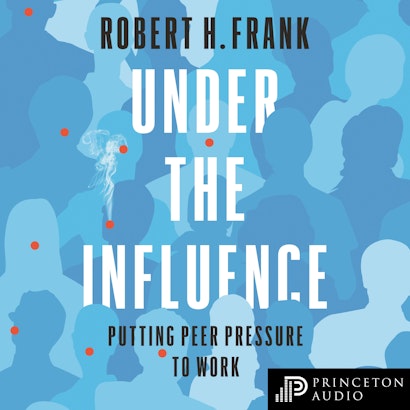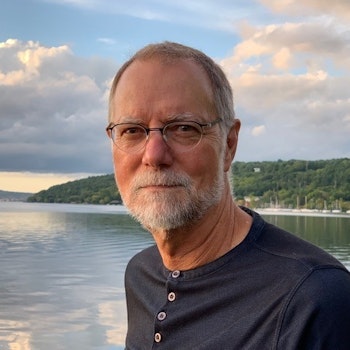Psychologists have long understood that social environments profoundly shape our behavior, sometimes for the better, often for the worse. But social influence is a two-way street—our environments are themselves products of our behavior. Under the Influence explains how to unlock the latent power of social context. It reveals how our environments encourage smoking, bullying, tax cheating, sexual predation, problem drinking, and wasteful energy use. We are building bigger houses, driving heavier cars, and engaging in a host of other activities that threaten the planet—mainly because that’s what friends and neighbors do.
In the wake of the hottest years on record, only robust measures to curb greenhouse gases promise relief from more frequent and intense storms, droughts, flooding, wildfires, and famines. Robert Frank describes how the strongest predictor of our willingness to support climate-friendly policies, install solar panels, or buy an electric car is the number of people we know who have already done so. In the face of stakes that could not be higher, the book explains how we could redirect trillions of dollars annually in support of carbon-free energy sources, all without requiring painful sacrifices from anyone.
Most of us would agree that we need to take responsibility for our own choices, but with more supportive social environments, each of us is more likely to make choices that benefit everyone. Under the Influence shows how.
Robert H. Frank is the H. J. Louis Professor of Management and Professor of Economics at Cornell University's Johnson Graduate School of Management. He has been an Economic View columnist for the New York Times for more than a decade. His many books include The Winner-Take-All Society, The Economic Naturalist, and Success and Luck (Princeton). Trevor White is a Canadian and British actor known for his roles as Bill Adler in HBO’s Industry, Patrick Gordon in Downton Abbey, and James Blake in Doctor Who. He has appeared in major films such The Dark Knight Rises, Jason Bourne, and Die Another Day, and he played Hotspur in the Royal Shakespeare Company’s production of Henry IV, among other stage credits.
"This is a fascinating look at the way other people unconsciously determine our everyday behaviour and is a useful addition to the many works on how human psychology affects economic decision making."—Money Week
"Frank's points . . . raise some big questions. Which reminds us that economics cannot be a merely technocratic discipline."—Chris Dillow, Stumbling & Mumbling
"This broadly themed book addresses the complexities of our social environments — for example, how group behavior gives rise to bullying — but a lot of what it discusses applies to worldwide environmental issues, too. The result is a combination of psychology and economics that illustrates how the human ‘herd instinct’ can be put to good use to solve the climate crisis and other problems."—John R. Platt, The Revelator
"An invaluable new book. . . . If policy-makers have any sense, this book will be as important a manual in the 2020s as Nudge was in the 2010s."—Felix Martin, New Statesman
"This erudite, provocative book is apt for reading now."—Julia Hobsbawm, Evening Standard
"Extraordinarily timely: It’s an effort to show that the economics of social contagion could reshape the world, solving our hardest problems — from climate change to income inequality — and offering new ways to think about the power we have as individuals. Absent the pandemic, its argument might’ve seemed abstract, optimistic. But now we’ve seen it happen. We are watching a version of Frank’s thesis play out right now, in real time. In the wake of coronavirus, social pressure has driven perhaps the single fastest behavioral transformation in human history. It is the example and pressure we face from each other that has made social distancing so effective, so fast. And if social pressure can do that — what else can it do?"—Ezra Klein, Vox

